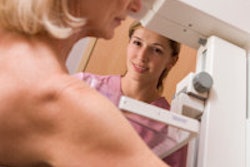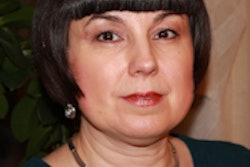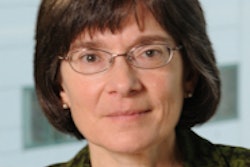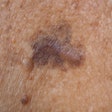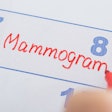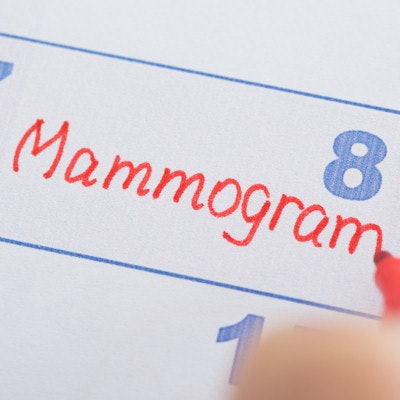
Women with false-positive results from a screening mammogram are significantly more likely to delay subsequent exams than women with true-negative results, according to a study published online February 9 in Cancer Epidemiology, Biomarkers & Prevention.
Among those with false-positive results, 22% delayed their next exam, compared with 15% of those with true-negative results. The study findings suggest that women with false-positive mammograms may be at higher risk for late-stage disease at diagnosis and need to be tracked to ensure they receive necessary screening exams, wrote the team led by Firas Dabbous, PhD, of Advocate Health Care in Park Ridge, IL.
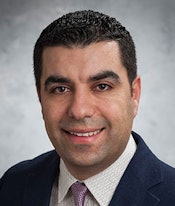 Firas Dabbous, PhD, of Advocate Health Care
Firas Dabbous, PhD, of Advocate Health Care"Women who experience a false-positive mammogram result should be provided with more information about the continued benefits of mammography screening and encouraged to maintain adherence to screening mammography recommendations," Dabbous and colleagues wrote.
Handling 'harms'
One of the downsides of mammography is false-positive results, which some have estimated to be as high as 10% of all screening mammograms, according to the group, which also included researchers from the University of Illinois at Chicago and Northwestern University. In fact, studies have suggested that about half of women who are screened annually over a decade can expect at least one false-positive finding.
That's why it's important to understand how women might react to a false-positive mammogram, and to offer them support, Dabbous told AuntMinnie.com.
"Clinicians need to take a more active role with women who have had a false-positive result, since they're at higher risk of not coming back," he said. "Women need to understand the limitations of mammography screening, yes, but also that mammography is the best tool we have right now for catching cancer early."
For the study, Dabbous and colleagues used a database that included 741,150 screening mammograms from 261,767 women between the years 2001 and 2011. Of these exams, 12.3% were false positives and 87.7% were true negatives. They defined delayed mammograms as any exam performed more than 12 months after a woman's first screening exam.
Women who had false-positive results tended to be younger, premenopausal, more likely to have denser breasts, and more likely to be presenting for their first screening mammogram, the researchers found. Among those with false-positive results, 22.1% delayed subsequent screening, compared with 15% among those with true-negative results (p < 0.001).
Women who had a true-negative result were 36% more likely to return for screening within the following 36 months than those who had a false-positive result. The median delay in returning for a subsequent screen was three months for women with true-negative results and 13 months for women with false-positive results. In addition, the four-year cumulative risk of having a late stage at diagnosis was 0.4% for those who had a false-positive screening mammogram, compared with 0.3% for those who had a true-negative result (p < 0.001), Dabbous and colleagues found.
"Our study findings suggest that the delay in returning to recommended mammography screening practices increased the risk of subsequent diagnoses with late-stage breast cancer," the group wrote.
The researchers conceded that one study limitation is that it's possible that the women who appeared to delay their subsequent screening exam may have had the exam elsewhere.
Offering support
At Advocate Health Care, clinicians make time to talk with women who have false-positive mammograms, encouraging them to come back, Dabbous said. Also, all women of screening age are sent mailed reminders about their next screening exam; network members receive information about mammography through emailed news bulletins and through a website devoted to breast cancer awareness.
Communicating clearly with these women is crucial, especially in light of the ongoing debate over mammography's efficacy -- and when and how often women should be screened.
"Mammography has limitations, one of which is false positives," Dabbous told AuntMinnie.com. "But mammography remains the only modality that we currently have to screen women for breast cancer and find cancers early, when they're more treatable. For that reason, we don't want women with false-positive results to skip subsequent screening."




